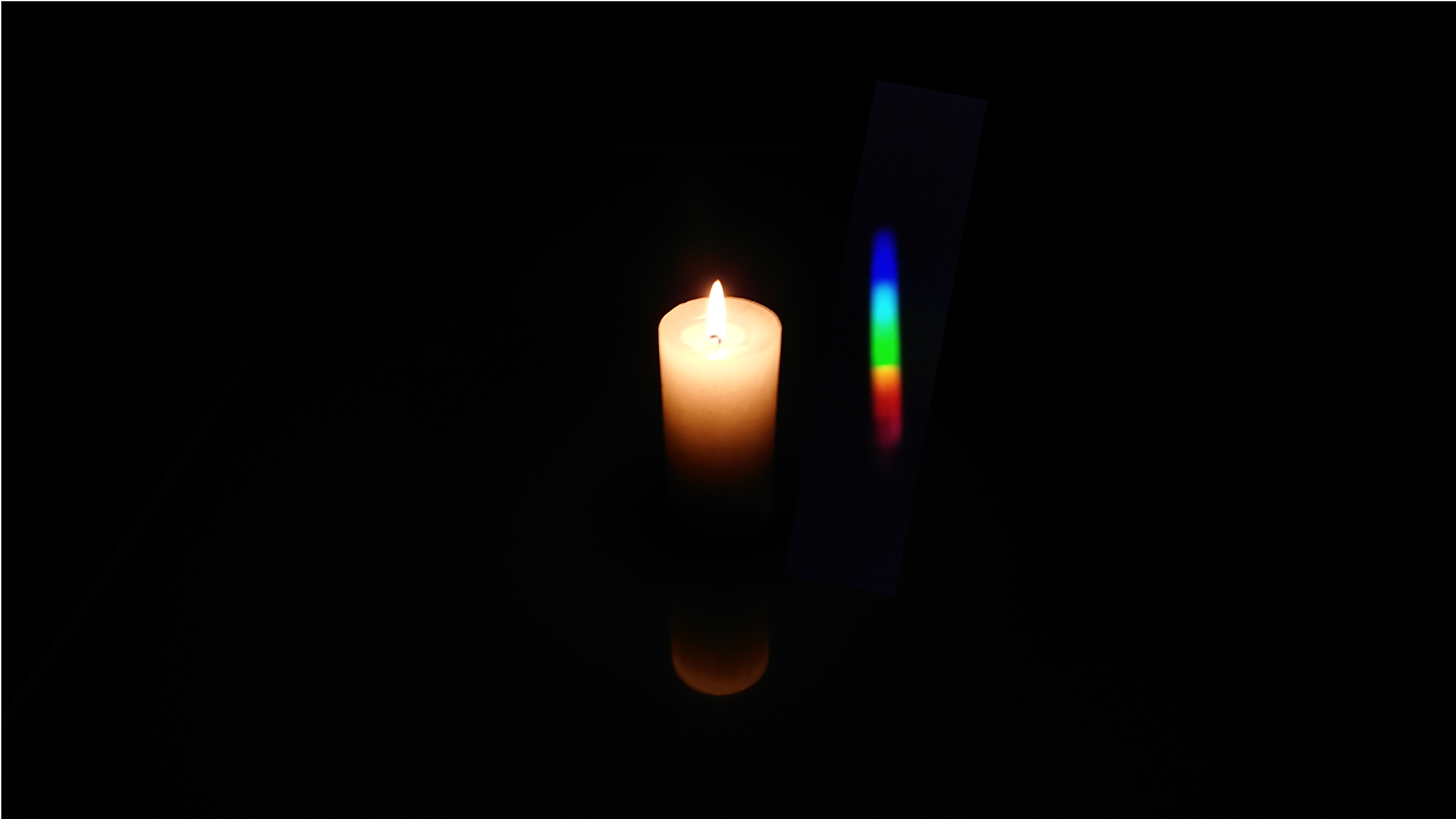As the days get shorter, we turn to candles and artificial light to illuminate our evenings. We perceive a stark difference between these light sources, but what makes the light of the candle warm, and the light of a white LED cool? Looking into the matter from a physical perspective, white light is the combination of electromagnetic radiation of different wavelengths. For visible light, the wavelength of the light corresponds to its colour. If we can manage to separate white light into its components, we can artificially create a rainbow, where the colour spectrum is separated from red to blue.
It is precisely this artificial generation of rainbows that we use spectrometers for. We can use it to investigate and compare the composition of light from different sources. A simple spectrometer is composed of a light source, a beam rectifier, an refractive grid and a detector. Using these components and a bit of black paper, one can easily build their own spectrometer: A beam rectifier is simply a small slit, and a refractive grid can be scavenged from an old DVD-R. As detector, we can use the omnipresent camera of a smartphone. You are cordially invited to join us today from 4pm in our office at Gerbergasse 3 in Villach, to build your very own spectrometer and learn how to use it.
If you are interested, but you cannot make it to our workshop, you can find the design at spectralworkbench.org and watch a video with detailed instructions online.
About the author
Anna Wächter-Mittersteiner is a molecular biologist. She studied in Vienna and Zurich and conducted research on signal processing in immune system. At the moment she is in charge of science communication workshops at Biotop.
